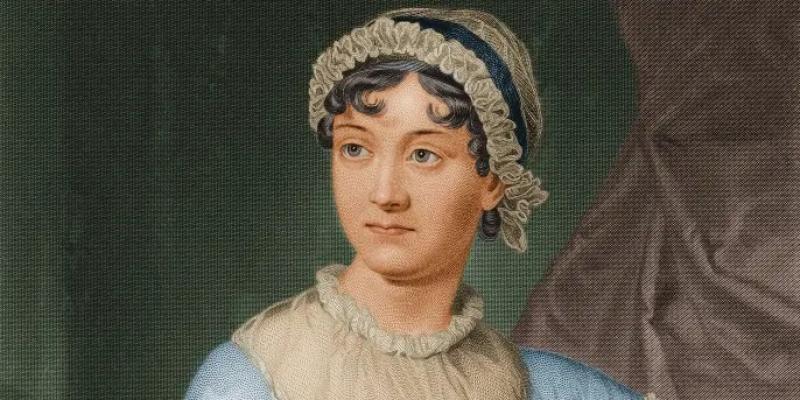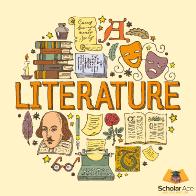Why Jane Austen Never Married
By: BY: ERIN BLAKEMORE

Why Jane Austen Never Married
It is a truth universally acknowledged that marriage isn’t always in the cards.

STOCK MONTAGE/STOCK MONTAGE/GETTY IMAGES
Fanny Knight didn’t know what to do. She was supposed to be in love, but when it came time to marry, she couldn’t muster up many feelings for her intended. A concerned aunt warned her not to look a gift horse in the mouth—but not to marry too hastily.
“Nothing can be compared to the misery of being bound without Love,” the aunt wrote in an 1814 letter. “If his deficiencies of manner strike you more than all his good qualities, give him up at once.”
Auntie should know—she was Jane Austen, one of history’s most astute observers of love, marriage and flirtation. But though the novelist published six novels about love, including Pride and Prejudice , she never married. Not that she didn’t get the chance—she turned down multiple chances at long-term love.
Like her heroines, Austen was witty, pretty and flirtatious. And like the heroines she would later create, it was up to her to translate those charms into a financially stable marriage. At the time, marriage was a complex economic decision, because women’s wealth was tied up in the marriage market.
Women’s fortunes passed from their fathers to their husbands, who controlled their wealth until their death, and men had to decide on wives whose fortunes could help fund their lands and lifestyles. As a result, it was common for engagements to be contracted not for love, but for economic reasons—a common trope in Jane Austen’s novels.
For Jane, things were complicated by the fact that she had no dowry. Her father had financial difficulties and no money to pass on to his daughters, and Jane knew that she’d have to overcome that financial speed bump by being so charming or witty that a man could not refuse her. She got her chance in 1795, when she met Tom Lefroy.

THOMAS LEFROY - HULTON ARCHIVE/GETTY IMAGES
The Irish nephew of a family friend, Lefroy piqued the 19-year-old Jane’s interest. She attended several parties with him and liked him enough to write about him to her sister, Cassandra, bragging that they had frequently danced and visited at several balls.
Then, in January 1796, Jane wrote an intriguing letter to Cassandra. “I rather expect to receive an offer from my friend in the course of the evening,” she wrote. “I shall refuse him, however, unless he promises to give away his white Coat.”
It’s unclear if Jane was referring to an offer of marriage or just of a dance—but Jane’s biographers have speculated about it ever since. Either way, the youthful romance (if it was a romance) soon fizzled out. Lefroy moved back to Ireland and eventually became Ireland’s most senior judge.
Jane’s financial situation may have contributed to Lefroy’s lack of interest, but in 1802, a 27-year-old Jane got another chance at love. She was visiting friends when Harris Bigg-Wither, a brother of her friends, proposed to her. By then, Jane was relatively old in a world where women married young. Bigg-Wither was six years her junior, but she accepted him anyway.
The story might have ended there, with Jane Austen becoming Jane Bigg-Wither and her extraordinary life becoming an ordinary one of marriage and motherhood. But the day after accepting Bigg-Wither’s proposal, Jane did something astonishing: She broke the engagement.

JANE AUSTEN AND HER SISTER CASSANDRA, 1810. - UNIVERSAL HISTORY ARCHIVE/UIG VIA GETTY IMAGES
It’s unclear if Jane did so because of her sister, Cassandra , who was mourning the death of her fiancé, or if she just didn’t like Bigg-Wither—which would explain the letter to her niece about the perils of marrying without love. It’s a sentiment she expressed in her novels, too—though she also famously wrote , tongue in cheek, that “Happiness in marriage is entirely a matter of chance.”
There may have been another reason entirely. Though Jane and Cassandra were financially dependent on their family as spinsters, they may have decided to pursue lives that weren’t reliant on the whims of husbands and children. And Jane, who had been an avid novelist since she was a teenager, may have feared that life as a wife and mother would have interfered with her writing.
Austen went on to become one of literature’s bravest explorers of the rocky waters of love and marriage—and though she never married herself, she had plenty of experience with both topics. And the fact that she stayed single may be the reason we have her books to begin with.
After Jane turned Bigg-Wither down, she never had another brush with marriage—that we know of, that is. And we’ll never know, thanks to Cassandra Austen. After Jane’s death, Cassandra burned the vast majority of her correspondence. It was a common move at the time, and may have been the family’s way of controlling Jane’s legacy as an author and a biographical figure.
The fact that Cassandra torched Jane’s correspondence doesn’t necessarily mean she had something to hide. However, it does mean that biographers and fans must look to Jane’s witty books—not her personal papers—for clues about her attitudes toward love. Given Jane’s portrayal of bumbling proposals, thwarted crushes and a ruthless marriage market, it’s tempting to think that her love life was even more colorful than we know.
Erin Blakemore is an award-winning journalist who lives and works in Boulder, Colorado.
The Code of Conduct and Terms of Service must be complied with.
Anything posted about current politics or religion not relevant to Jane Austen and/or the topics referred to in the group description above will be deleted as "off topic".
Videos or images or links to sources that the Administration cannot open must be described or explained when requested or they will be deleted.





Perhaps if Jane Austen HAD married, she might have been so involved in homemaking, raising children, accompanying her husband, etc. the world might not have been blessed with the benefit of her brilliant novels.
Never underestimate women. There are women who can do both.
[✘]
Yes, these days Vic, but you didn't have to go too far back when women who married and had children had little time to devote to other than a homemaker and motherly duties, although I do recall that my mother was an artist, painted portraits, but very few as she had little time until my brother and I were grown up and independent and my father had passed away in his 60s.
If she had married, she would not have been able to devote much time to writing, and it would not have been considered socially acceptable for her to be paid for writing.
Her sister Cassandra was very helpful in making sure she had the solitude she found necesssary to write as she did. Cassandra took care of many of the domestic duties that would otherwise have fallen to Jane.
Jane Austen was well aware of the demands on married women, and had lost several sisters-in-law to death in childbirth.
I wonder how long it would have taken Jane to write one of her novels - certainly much too long for there to be time for the normal duties of a person keeping a house. Of course they were written out by hand, especially if the "hand" is as clear and beautiful as the samples I've seen, and could not possibly have been written with any speed. I write with speed and the next day can't read what I wrote.
I took particular note that on one article I saw a copy of a letter Jane wrote to Cassandra, and it had on it writing that crossed the original writing (i.e. the page was turned 90 degrees and then written again across the original writing). It made me recall that when I searched titles, and had to go as far back as the mid-1800s that I came across that kind of writing, which was done to save paper. But the writing was so clear and perfectly formed that It could be read both ways pretty easily.
I think some of them took years, due to revisions.
Crossing paper saved both paper and postage, which I believe was pretty expensive at the time.